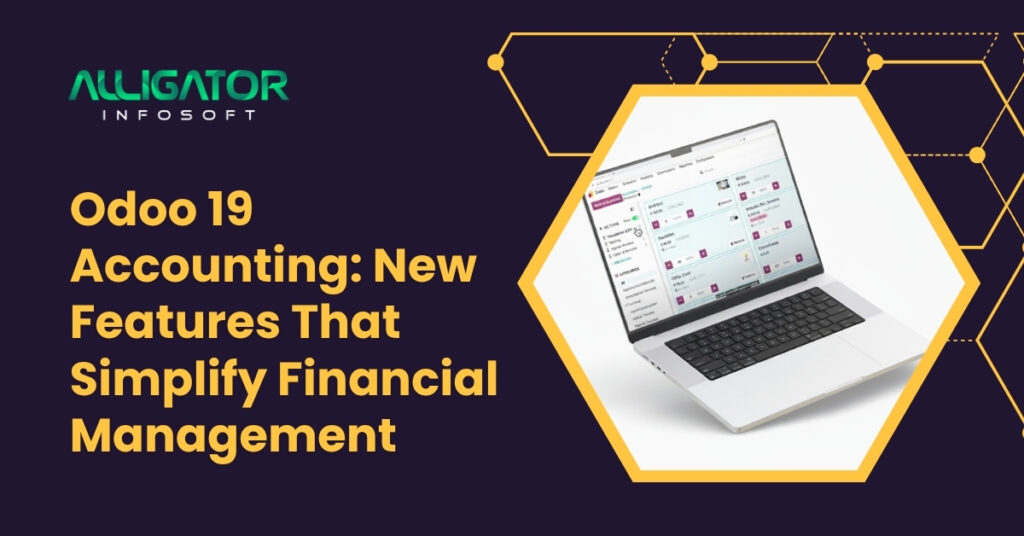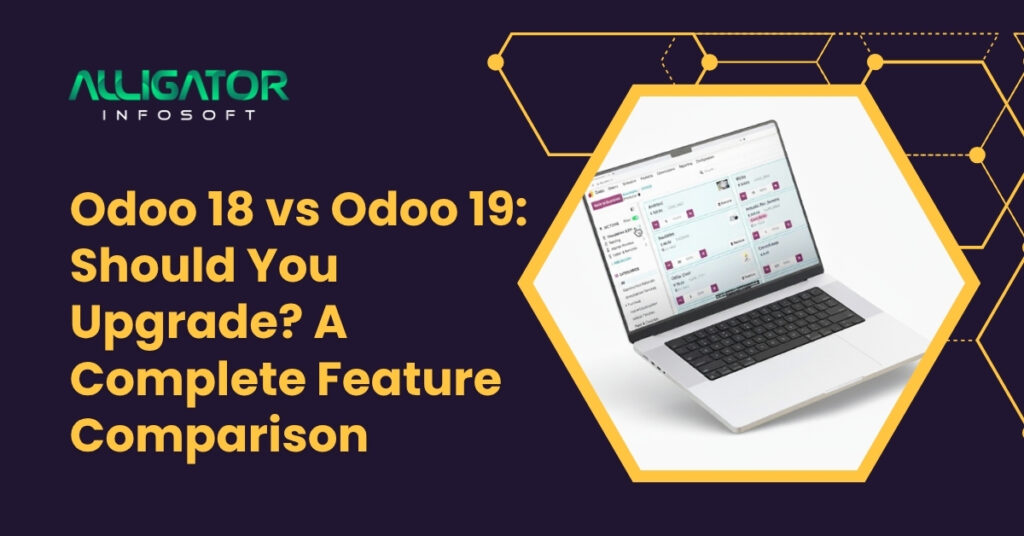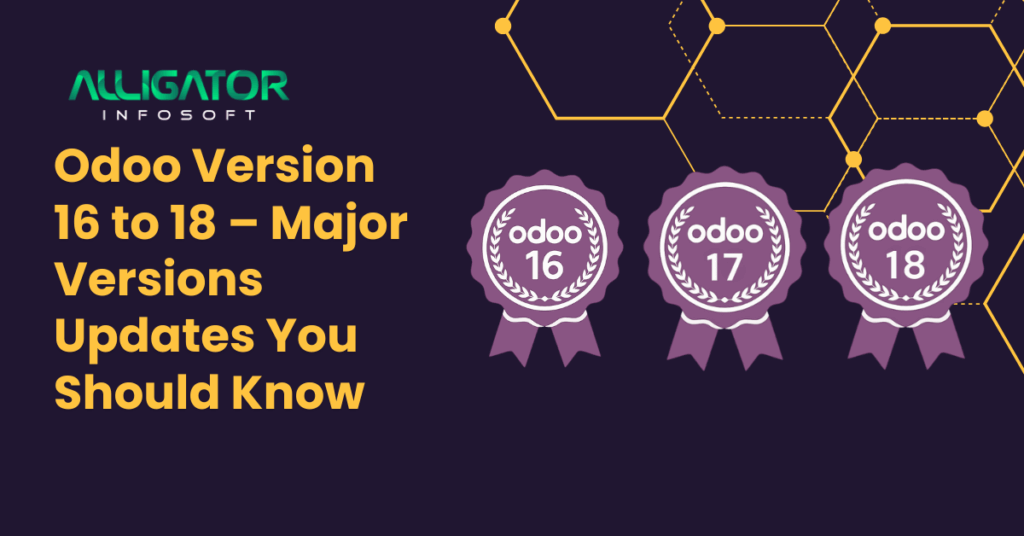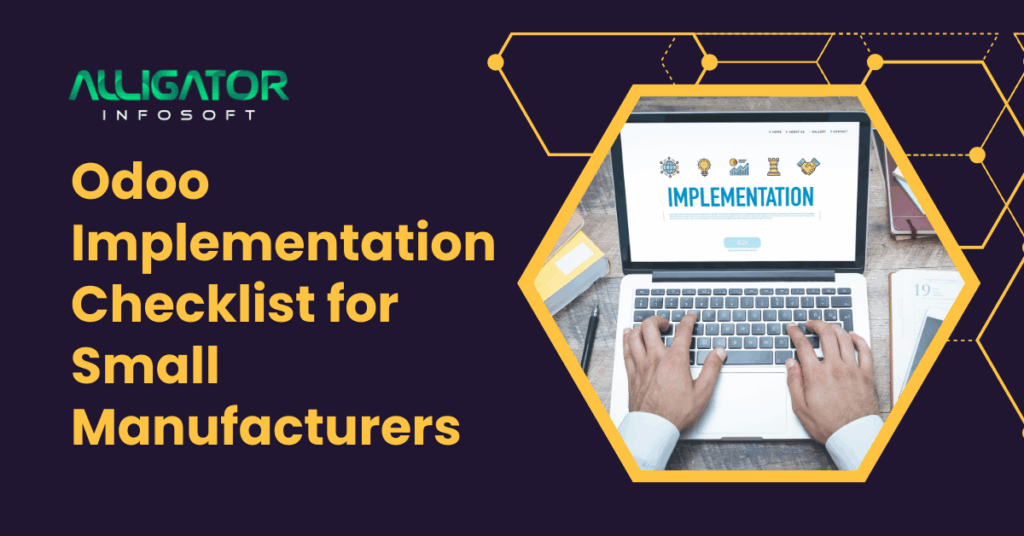Odoo 19 for Manufacturing: New Features to Boost Productivity
Summary: Odoo 19 brings a revolutionary shift in manufacturing efficiency with upgraded automation, AI-powered quality control, smart scheduling, improved work order visibility, and IoT integrations. The new enhancements significantly boost productivity, reduce manual tasks, minimize downtime, and enable faster data-driven decisions for manufacturers. The global manufacturing industry is evolving rapidly, demanding higher efficiency, faster production cycles, and improved quality standards. To stay competitive, companies require an ERP system that connects every aspect of production—from planning and procurement to inventory and delivery. Odoo 19 is built to meet these demands, offering a smarter and more automated MRP system than ever before. With improved UI, better data visibility, advanced scheduling, and connected systems, Odoo 19 enables manufacturers to optimize workflows and achieve higher output with reduced operational costs. How Does Odoo 19 Enhance Manufacturing Operations? 1. Smart Production Scheduling Odoo 19 features an upgraded intelligent scheduling engine that optimizes workload distribution across machines, work centers, and labor. Benefits include reduced idle time, faster completion of orders, and superior resource utilization. 2. Enhanced Work Order Interface The modern, tablet-friendly work order dashboard improves shop-floor productivity. Workers can instantly access BOM instructions, machine settings, QC checkpoints, and material consumption data. Barcode scanning compatibility speeds up execution and reduces errors. 3. AI-Powered Quality Control Quality management becomes proactive with AI-driven inspections. Odoo 19 predicts quality failures, suggests preventive actions, and automates corrective alerts. This reduces rework and maintains consistent product quality. 4. Efficient Manufacturing Order (MO) Planning Manufacturing orders now adjust dynamically based on live conditions. Users can automatically modify lead times based on workload, merge or split MOs, and switch suppliers or substitute raw materials. This enables continuous production without bottlenecks. 5. IoT & Machine Connectivity in Real Time Odoo 19 supports deeper connectivity with industrial IoT hardware. It records machine performance instantly, monitors downtime, and triggers predictive maintenance based on data patterns. This leads to faster troubleshooting and extended machine life. 6. Multi-Level BOM Enhancements BOM versioning has been upgraded to support complex manufacturing structures. Users can track multiple BOM revisions, compare versions, and apply changes without interrupting production. Cost calculations update automatically based on component and revision changes. 7. Advanced Material & Inventory Management The enhanced MRP-Inventory integration delivers accurate raw material forecasting, better JIT (Just-in-Time) control, and automated purchase orders for low-stock items. Material availability details are now displayed within MOs, preventing delays. 8. Production Analytics & Real-Time Dashboards Odoo 19 offers production analytics with KPIs such as OEE (Overall Equipment Effectiveness), machine and labor costing, scrap levels, and downtime analysis. Businesses can make informed decisions based on actionable live data. 9. Cross-Department Collaboration Odoo 19 improves collaboration across Manufacturing, Inventory, Maintenance, and Quality teams through real-time message logs and automated workflow alerts. This eliminates communication delays and increases operational transparency. 10. Cloud Speed & Security Enhancements With improved cloud architecture, Odoo 19 offers faster response times for large datasets, increased scalability across plants, and enhanced encryption for secure operations. Manufacturers can rely on the platform for global expansion without performance concerns. A Smarter, Faster, and More Connected Manufacturing Future Odoo 19 empowers manufacturers with deeper automation, live visibility, and seamless digital workflows. By minimizing downtime, improving resource planning, and simplifying quality management, Odoo 19 enables companies to operate with higher productivity at lower costs. For businesses seeking expert ERP deployment, partnering with the best Odoo development company in India ensures seamless customization and maximum ROI across manufacturing operations—even when scaling across regions such as Texas. Frequently Asked Questions (FAQs) Does Odoo 19 support both discrete and process manufacturing? Yes, Odoo 19 supports both with flexible routing and BOM management. Is Odoo 19 suitable for small and medium manufacturing companies? Yes, Odoo 19 is scalable and ideal for SMEs as well as large enterprises. Can Odoo 19 work with barcode scanners on the shop floor? Yes, barcode scanning is supported for work orders, quality checkpoints, and material tracking. Can Odoo 19 be connected to industrial IoT devices? Yes, manufacturers can connect sensors, machines, and PLCs through the Odoo IoT Box. What new features enhance quality control in Odoo 19? AI-based inspection predictions, automated QC triggers, and improved reporting dashboards. Does Odoo 19 offer predictive maintenance features? Yes, predictive maintenance is available through machine data insights and performance monitoring. Can Odoo 19 calculate cost per production batch? Yes, costing includes materials, labor hours, and overhead allocations. Is production data updated in real time? Yes, live dashboards provide up-to-the-minute performance visibility. How does Odoo 19 reduce downtime on the factory floor? Through predictive maintenance, automated scheduling, and IoT-based machine monitoring. Can Odoo 19 integrate with third-party systems? Yes, Odoo provides API and web service integration for MES, CRM, ERP, and custom applications.










